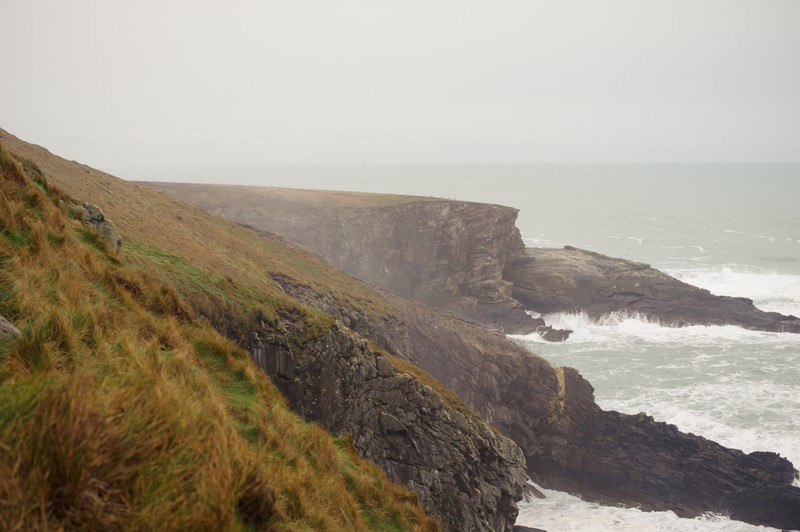If you’re thinking about moving to Ireland, or any other country for that matter, it’s always a good idea to think it through. At least a little bit! Here are a few small answers to questions you might have about Ireland.
Should we visit Ireland as tourists before we move? When?
This is a good idea, but if you’ve travelled in Europe a little bit then you’ll have a rough idea of what living in Ireland could be like. In particular, the weather! Here’s a comparison of Cape Town and Dublin over on WeatherSpark. That said, living somewhere and holidaying somewhere are two quite different things.
Will I need a visa to visit the country?
For South Africans on a tourist visa, no visa is required at the date of writing this. If you hold a different passport, you might need a visa or if you’re looking at another European country, you might need a Schengen visa.
How will I get a job? Will my spouse be able to work?
If you’re in IT, I recommend contacting a recruitment agency called Zartis. There are quite a lot of great recruitment companies in the country that specialise in IT and might be willing to help.
If you have another occupation, you will have to check if your job is in-demand in Ireland. You can always just try apply to jobs that you find on job sites and so on, but basically the more specialised you are in a field that is in demand, the more luck you’ll have.
What do things cost in the country I’m going to?
It’s probably safe to say that things just cost a lot in Ireland, especially if you’re converting from Rands. A few things are surprisingly expensive, for example car insurance and bin collection services (which are private). Ireland is also quite an expensive country to live in (here’s a really useful comparative resource, Numbeo!). However, salaries generally balance out the living costs.
What is the economy like?
After the recession, Ireland exchanged the term “Celtic Tiger” for “Celtic Phoenix“. Although the economy and country struggled a few years back, it seems to be growing along nicely.
How much would I be able to earn? Will we be able to afford it?
Here is a salary guide for 2015. Salaries vary according to where you will be based, for example, a Project Manager in Waterford will earn less than a Project Manager in Dublin.
Whether you’ll be able to afford it or not really depends on how big your family is, your life style and if you’d be willing to stick to a budget, especially in the beginning (before you get your first payslip).
Will the pets be coming with? How do you organise that?
This is a complex one. I will be doing a blog post on moving pets to Ireland soon.
When should we move over?
In your remote job interview, you will probably have to give a time estimate as to when you can start working. So, once you get a job, you might need to start work in Ireland within three months from when you signed the contract (once you get your work permit). Moving is expensive, so before you start, it’s a good idea to calculate all the costs involved and do some financial planning first to see how much money you’ll need to save.
How much will it cost to visit family?
A return trip to South Africa from Ireland is currently about €1000 per person, which isn’t exactly cheap. At the moment, we’re planning to fly back to see family ever 2 years or so.
Most flights are from Dublin and fly through London or Amsterdam (you may need visas for transit through both the U.K. and Schengen areas). If you end up living in Cork, you will have to take a bus from the city (about €30 per person return) in order to arrive in Dublin with enough time to be able to catch your international flight (the train is about 4 times the price). There are flights from Cork to many international destinations though!
Which bills will we cancel and which shall we keep on debit order?
This will depend on if you want to return to South Africa, or not (or just leave some options open for a while).
What shall we sell, give-away and ship? How much does shipping cost?
Shipping things is expensive and so is buying new things here. We went with trying to ship small things and sentimental things; we sold most of the big things. Storage in South Africa is also fairly expensive. Perhaps you’ll be able to see the move as a chance to minimise.
Most apartments in Ireland are furnished, so you probably won’t even need furniture. In fact, furniture could even be a problem! We rented an unfurnished place that included was a microwave, toaster, kettle, washing machine, tumble drier, dishwasher, dining room table chairs and two lounge suites. Actually most places are furnished even more completely (including cutlery and curtains, for example, but usually not bedding!).
Can I run my own business overseas?
Yes, if you have a lot of money to invest and can create jobs. You can find out more about the Start-up Entrepreneur Programme and the Immigrant Investor Programme here.
Do I have all the paperwork I need?
The documents that you really need to get your hands on in advance are mainly an unabridged marriage certificate if you’re married (this cam take months to get from Home Affairs). You’ll need to check the expiry of your passport too. It takes a long time to get a new South African passport from Ireland (at least 8 months, in which time travel is not advised) so it might be worth investigating if it’s possible to get a fresh passport from South Africa before leaving the country if you are planning to stay in Ireland for several years.
What is the health system like in the country I’m going to?
Many people have private health insurance in Ireland. The main insurers are Irish Life Health, Laya Healthcare, VHI Healthcare and HSF Health Plan. I have used both Irish Life and Laya and had positive experiences with both. You can read more about private healthcare in Ireland here.
What is the crime rate like?
In simple terms, the crime rate in Ireland is not comparable with South Africa. You can check out the murder rates per country on Wikipedia. Numbeo also has a crime index. National master is also a good place to go for all sorts of stats. The police officers, the Garda Síochána, in Ireland are referred to as “Gards”, “Garda” or “Gardaí”. They don’t typically carry guns.
What about the laws and culture?
Do some research on-line, listen to their local radio stations and the news (look up RTE, Ireland’s National Television and Radio Broadcaster).
What about the kids?
As I have none of my own, I don’t have any personal opinions to share. However, it is well worth researching the related costs of school, childcare and extra activities.
I hope that helps as a starting point!



